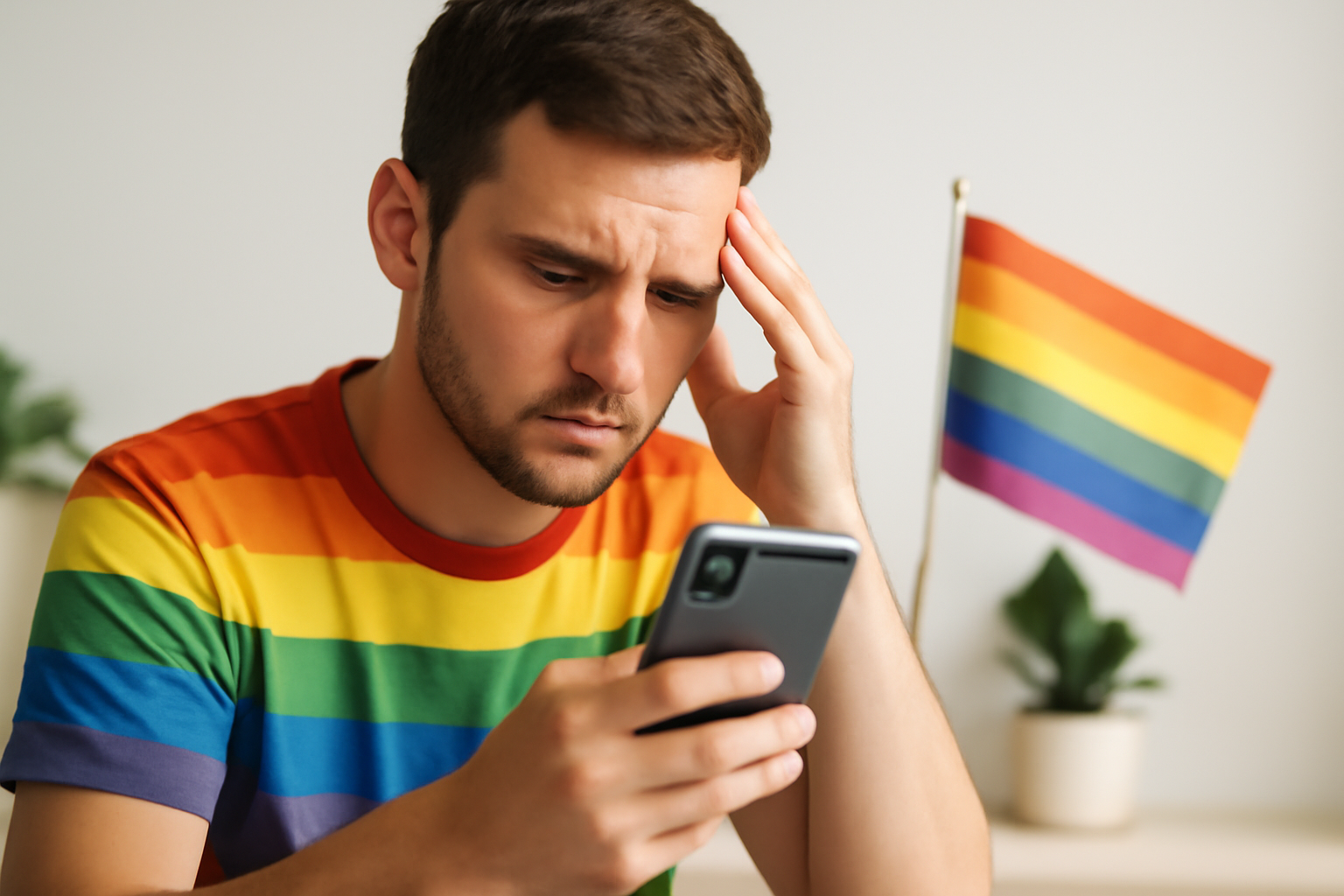
In recent times, social media platforms have become a pivotal space for community building and advocacy, particularly for marginalized groups such as the LGBTQ+ community. However, there have been ongoing concerns about how these platforms manage content related to LGBTQ+ issues. A recent incident has sparked a significant discussion regarding the policies and practices of a major social media company, and it has stirred a broader conversation about inclusivity and respect within digital spaces.
The Role of Social Media in LGBTQ+ Advocacy
Social media has undeniably played a crucial role in providing a voice to individuals and groups that have traditionally been marginalized. For the LGBTQ+ community, platforms like Facebook, Instagram, and Twitter have been instrumental in connecting people globally, allowing for the formation of supportive networks and the dissemination of important information. These platforms have provided a space for advocacy, education, and the celebration of diverse identities.
However, the dual nature of social media, where the potential for positive impact is matched by the possibility of harm, presents unique challenges. The algorithms and policies that govern what content is allowed or promoted can sometimes inadvertently reinforce stereotypes or enable harassment, which is particularly concerning for vulnerable groups.
The Controversy: Content Moderation and LGBTQ+ Rights
Recently, a major social media platform faced criticism after it was discovered that its moderation system allowed users to label LGBTQ+ individuals and groups in derogatory terms, such as being "mentally ill." This revelation was alarming to many users and advocates who argued that such practices not only perpetuate harmful stereotypes but also undermine the platform's commitment to inclusivity.
The situation highlights the complexities involved in content moderation and the importance of having robust and sensitive systems in place. While algorithms are necessary to manage the vast amount of content generated daily, they must be designed with an understanding of nuanced social issues. This incident has prompted users to demand more transparency from the company regarding how decisions are made and what steps are being taken to rectify any shortcomings in their systems.
Community Reactions and the Demand for Change
The response from the LGBTQ+ community and allies has been swift and vocal. Advocacy groups have called for a comprehensive review of the platform's content moderation policies and practices. They emphasize the need for these systems to be informed by diverse perspectives, particularly those from communities that are frequently targeted by hate speech and misinformation.
In the face of backlash, the platform has acknowledged the issue and committed to making improvements. They have promised to work closely with LGBTQ+ organizations and experts to ensure that their policies do not inadvertently harm the communities they aim to support. This incident serves as a reminder of the responsibility tech companies have in creating safe and welcoming environments for all users.
Looking Forward: Building Inclusive Digital Spaces
As discussions about the role of social media in society continue, it is crucial for platforms to prioritize inclusivity and respect. This involves not only addressing specific incidents but also implementing long-term strategies that prevent such issues from occurring in the first place. Training algorithms to recognize and reject hate speech, fostering diverse teams that can provide a wide range of perspectives, and maintaining open channels of communication with users are all steps in the right direction.
Moreover, social media companies should consider the impact of their platforms on marginalized communities and strive to amplify positive voices while minimizing harm. This includes supporting LGBTQ+ content creators and ensuring that their work is not only protected but also celebrated and uplifted.
Ultimately, the goal is to create digital spaces where everyone feels valued and respected, regardless of their identity. By taking proactive measures and engaging with the communities they serve, social media platforms can continue to be powerful tools for connection and change.
In conclusion, the recent controversy serves as a critical reminder of the ongoing challenges in the realm of social media and content moderation. It underscores the need for continued vigilance, collaboration, and innovation to ensure that these spaces remain inclusive and supportive for all users, particularly those who are most vulnerable.
Related Posts
Triumphant Trans Woman Wins Legal Battle and Inspires Others to Stand Up for Their Rights
Breaking new ground: a landmark victory in transgender rights After battling in courtrooms and enduring endless challenges, Diana Portillo, a transgender woman, has secured a monumental victory in her decade-long fight against workplace discrimination. The result? Nearly $1 million awarded in a historic settlement. But this isn't just a win on paper—it represents a powerful precedent in combati [...]
Pride Month in Latin America: Protests and Demands for Equality
**Celebrating Pride and advocating LGBTQ+ rights in Latin America** Pride Month in Latin America was a lively mix where celebration met activism. Communities united, not just throwing a party but making a stand—demanding equality and pushing governments toward better protection and rights recognition. Throughout Latin America, pride events erupted in marches and cultural displays, each with a c [...]
Transgender Erasure Actions Implemented by National Park Service
```html Trump administration's impact on national park service and transgender recognition The Trump administration made notable moves in undermining transgender representation, which included directing agencies like National Park Service not include "T" and "Q" when they refered “LGBTQ” in any official communication. This move seems part a broader plan by this administration aimed at reducin [...]